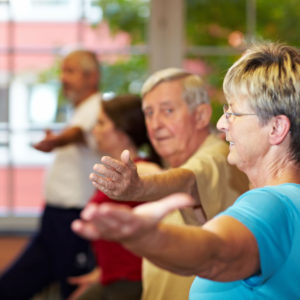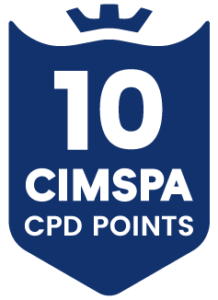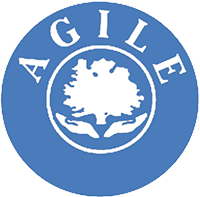4,251total PSI's trained
 Our Vision for PSI
Our Vision for PSI
To increase access to structured exercise programmes for older people evidenced to reduce falls (FaME). Not all exercise programmes are equal and not all exercise professionals are the same (appropriately qualified). We have been delivering the PSI endorsed training course since 2003, providing training for appropriate professionals in the skills to deliver effective, sufficiently dosed exercise opportunities for older people with a fear or history of falls and to improve habitual physical activity and reduce falls risk in the general older adult population
Content
The Postural Stability Instructor (PSI) training course equips exercise and health professionals with the knowledge and practical skills to deliver the FaME programme. The course content examines the prevalence and consequences of falls and fractures, costs, demographic trends, age related changes contributing to falls and the implications for independence and quality of life and most critically, how to deliver the FaME programme with fidelity. The theoretical work covers the physiological and psychological systems involved in postural stability and bone health and the impact of disease processes on falls and fractures. Risk assessment and health and safety related to accident prevention are key areas, together with the practicalities of establishing a programme. Practical work examines the structure of a falls prevention programme (FaME) with considerable emphasis being placed on behaviour change and motivation and the group management teaching skills; how to have conversations, demonstrate and teach effectively, adapt and progress exercises and provide alternatives for individuals with functional impairments and considering age related changes. Candidates are required to complete a written case study, multiple-choice theory paper and practical assessment.
Course Aims
- Support understanding of the requirements of evidence based practice and implementation of the FaME programme
- Provide training for exercise and health professionals to facilitate cost effective service provision (return on investment as recommended by Public Health England and Public Health Wales)
- Provide clarity around scope of practice for a PSI (exercise professional) supporting partnership working with referring health professionals
- Provide PSIs with a suite of assessment tools enabling them to identify suitability of participants into the FaME programme (identifying suitability for self-referral into the programme following pre-assessment, and associated liaison requirements with GP and physiotherapy services)
- Improve access for this vulnerable group of participants by increasing frequency and flexibility of exercise programmes
Encourage education about the benefits of exercise for reducing falls and injury among primary care professionals and lay people
Provide education and accurate messaging around physical activity recommendations for older people
Following completion of the course, the candidate should:
- be able to undertake an appropriate pre-exercise assessment for a participant identified as suitable for the FaME programme
plan and deliver an exercise programme for frailer older people (informed by FaME) which will safely and effectively improve their physical function, and in particular their postural stability, in order to reduce their risk of falls. - be able to support this practice with relevant background knowledge of:
- The causes and consequences of falls and fall-related injuries.
- The evidence relating to physical activity, falls and fall-related injuries.
- The medical conditions and medications likely to be encountered.
- The adaptations to practice, programming and supervision of falls and injury prevention sessions
Course Objectives
- Provide training to support implementation of safe, effective, enjoyable exercise programmes for falls prevention (with fidelity)
- Support implementation by clarifying scope of practice for exercise professionals
- Provide graded transitions between the primary care and community leisure settings
- Build on the functional gains achieved through physiotherapy and occupational therapy
- Provide support to physiotherapists working in the clinical and community setting
- Provide on-going assessment of health and functional capacity
- Provide social opportunities as part of a range of approaches to increase long-term commitment to exercise
PSI Course Duration and Learner Journey
The PSI course is delivered as blended learning i.e. a mix of face-to-face training days and online learning is via the LLT e-learning platform. The PSI learning journey spans approximately 16 weeks from pre-course learning to final assessment.
The courses can be run on both weekdays and weekends depending on demand. Each face to face learning day runs from 9am to 5.30pm and approximately a further 166 hours of non-contact revision and learning time will be required, giving a total of approximately 200 hours for the course.
Blended Learning Approach
Online Pre-course training
LLT have developed an online training portal designed to give more flexibility, reduce travel costs and time required off work and allow theory elements of the training to be completed in your own time. LLT are still committed to face to face/practical workshops and all these remain in place for your training, it is the theory elements that lend themselves well to self-directed learning that are available on the online portal for your convenience.
How will the online training portal work?
Once enrolled onto the course (at least 4 weeks before the face to face training):
- We will send by post the pre-course manuals you will need for the training
- We will email you an enrolment key (password) to access some resources prior to attending the face to face training, so when you attend the training you would have learnt a lot about the PSI course already which means we can really focus on your practical skills when we see you
- Your pre-course and mid course online tasks will include; viewing narrated PowerPoints and videos, completion of MCQ quiz’s and submission online of short answer worksheets
- All online tasks must be completed within the time frames specified. Online elements are mandatory and a requirement.
- Candidates not completing them will be putting themselves at a disadvantage and may find the face to face days challenging if they are not prepared for practical workshops and tasks.
- Online tasks are monitored and supported by your LLT tutor and are required to be completed within allotted time frames to ensure you are fully prepared for each of the face to face training days.
Completion of the pre-course online elements will require you to have;
- Access to computer & reliable internet
- Around 12-14 hours to read manuals, watch the PowerPoints and complete the pre-course online tasks prior to face to face training
Software and Hardware requirements for your use of the training portal
There are no hardware requirements. There are software requirements – the minimum browser version that can be used is: recent Google Chrome(30+), recent Mozilla Firefox(25+) and Safari 6. Please note we do not recommend using smartphones or tablets for the e-learning work.
Face to face training
Following the online pre-course learning, the face to face training will focus on the group teaching skills of the PSI to prepare you for your practical assessment.
There are 4 face to face training days with the LLT tutor team. These run over a period of 4 to 6 weeks to allow sufficient time between course days for ‘home’ revision, and set online portal mid-course work (approximately 12-14 hours). The courses can be run on both weekdays and weekends depending on demand. Each day runs from 9am to 5:30pm.
The training and assessment are aligned with professional standards and in line with PD Approval endorsement requirements.
Resources
Candidates will receive course resources 4 weeks prior to the first face to face learning days, to allow the pre-course portal work to be completed.
Policy Documents
Click here to see the list of publications related to the Postural Stability Instructor course. These include references to research papers and policy documents that recommend FaME and PSI delivery of falls prevention exercise.
LLT’s Experienced Tutors
The Later Life Training tutor team is made up of physiotherapists and specialised exercise professionals and educators with specific expertise and experience working in falls prevention and adult education. In addition to the Later Life Training tutor team, there are online lectures delivered Dr Rob Morris, a Consultant Geriatrician in Nottingham.
You can download a PSI Flyer
Introduction
There is good evidence that tailored, specific exercise can improve postural stability and reduce other risk factors for falls and injurious injuries including osteoporotic fracture. It is essential, therefore, that Primary Health Care Teams and Social Services, ideally placed to detect individuals with a risk or history of falling, recognise the benefits of, and promote, referral into an appropriate exercise programme.
The course has been specifically designed to improve postural stability and reduce the risk of falls. It has been developed by a team with extensive expertise in the fields of research, exercise, medicine and general practice, falls and injury prevention, rehabilitation, education, social services and public health. It is based on published research showing a reduction in falls and falls injuries in people who have a high risk of falls.
It is a recognised, validated course and the only training course in the UK specifically for exercise and falls prevention. Candidates successfully completing PSI course are recognised by CIMSPA (fellowship membership is only applicable to graduates who hold an exercise referral qualification or new equivalent) as Fellow of the Chartered Institute and the title, Senior Activity and Health Practitioner.
Above all, this training course is practical, evidence-based and inter-disciplinary in nature, and aims to prepare candidates to promote independence and reduce falls among older people through the delivery of safe, effective, specialised exercise programmes.
The PSI (FaME) intervention has also been shown to work in a primary prevention trial. After a 6 month intervention, those in the FaME group significantly increased their moderate physical activity by 15 minutes a day and reduced their chances of falling by 26% compared to Otago and Usual Care Groups, even a year after the intervention finished. Click here to read more. Finally, you can download a FaME Implementation Toolkit to support service provision and fidelity here.
Original Development Team
The Training Curriculum, first developed in 1999, is supported by a National Advisory Group consisting of key personnel from Age Concern England, Ageing Well Active Age Unit; BHF National Centre For Physical Activity and Health, Loughborough University; Extend; Health Development Agency; Help The Aged; National Association for Providers of Activities for Older People; Research Into Ageing; Department of Primary Care & Population Science, Old Age Psychiatry & Health Services for Elderly People, University College School of Medicine & Royal Free Hospital NHS Trust, London; Department of Geriatric Medicine, King’s College London: Department of Geriatric Medicine, Edinburgh University; Department of Geriatric Medicine, Nottingham City Hospital; Departments of Physiotherapy and Occupational Therapy, St. George’s Hospital NHS Trust and Medical School. For more information on the development of the PSI training, see our history. The curriculum and learning journey is reviewed annually and new research added.
Evaluation
New Guidelines for Exercise Programming for the Frail Elderly have been published by the Better Ageing Collaborative based on the results of the European Commission Framework V Better Ageing Project. The project used the FaME programme as the basis of the exercise intervention and the original protocol for the FaME exercise intervention is cited. Click here to view.
The Wiltshire Health promotion services works with PSIs to ensure good practice in evidence based exercise provision in their falls service, Click here. In 2012, Aberystwyth University and Betsi Cadwaladr University Health Board performed a favourable evaluation on the “Functional and Psychological Changes During a Community Based 32 Week Postural Stability Training Programme: Recommendations for Future Practice“. A lovely brief video about the benefits that older people have felt from the classes is available to view here.
Evaluations from students on the course can be seen on the right in the testimonials section of the page. Finally, some published research papers (with PSIs as instructors) can be viewed in the Resources section and some new research (with PSI instructors) can be viewed in the News section.
 We are proud to receive endorsement from AGILE, the Specialist Section for Older People within the Chartered Society of Physiotherapy.
We are proud to receive endorsement from AGILE, the Specialist Section for Older People within the Chartered Society of Physiotherapy.
 The PSI course was previously endorsed with PDApproval as REPs Level 4 Qualification. Following the merger with CIMSPA, the PSI course CIMSPA endorsement and membership status can be found here (for CIMSPA members).
The PSI course was previously endorsed with PDApproval as REPs Level 4 Qualification. Following the merger with CIMSPA, the PSI course CIMSPA endorsement and membership status can be found here (for CIMSPA members).
Fellowship membership is only applicable to graduates who hold an exercise referral qualification or new equivalent e.g., long term conditions.
The course is also endorsed by the following key NGO’s: Age UK; BGS
In the UK, independent living frequent fallers halved their risk of falls (IRR 0.46, 95% CI 0.34 to 0.63) with 9 months of weekly group balance and strength exercises, led by a postural stability exercise instructor, combined with twice weekly home exercises (Skelton et al. 2005). The women undertaking this falls management exercise (FaME) had significantly lower mortality and morbidity at 3 year follow up than the randomised control group. The exercise intervention consisted of progressive resistance, gait, balance, functional activity, floor work, endurance and flexibility training. The exercise was individually tailored in both type and intensity, with most exercises in weight-bearing positions, reducing upper limb support. A Falls Exercise Management Programme should retrain or maintain the ability to get up from the floor and to avoid a ‘long lie’ after a non-injurious fall. It should also practice other coping skills such as crawling and rolling, summoning help and keeping warm while on the floor (Skelton & Dinan 1999).
More recent research by Professor Steve Iliffe and his team (ProAct65+) has shown that FaME over a 6 month duration both increases habitual moderate physical activity by more than 15 minutes a day and reduces falls even a year after the intervention ceased (Iliffe et al. 2015). Dr Sheena Gawler has published a more in-depth analysis of the falls reduction and has shown FaME, delivered by PSIs is highly effective (Gawler et al_ProAct65 Falls_AGG_2016).
Further details available through the Department of Health Prevention Package Website and download the DoH document, Falls and fractures exercise training to prevent falls. The 2012 RCP Audit of Falls Exercise Services showed that 51% of services employ a PSI Instructor. Finally, visit the Resources section where the papers and information forming the evidence base behind the PSI course can be viewed.
Please read our essential eligibility guidance before applying for this training:
CPR
It is the responsibility of the candidate to hold valid CPR, without this the qualification will not be valid.
Theory Paper
Candidates will take a 1 hour theory paper (MCQ) on the morning of Day 3.
Practical, Session Plan and Self Evaluation
Candidates will provide a written ‘one hour’ FaME session plan designed for the ‘training gains’ phase that should also include examples of skilling –up and maintaining gains phases. This plan will then be used for the practical teaching assessment and candidates will be required to self-evaluate their teaching. Particular emphasis will be placed on specific teaching points for consideration for older people at risk of falls and advanced teaching skills to increase effectiveness. Approximately 35 minutes of teaching will be observed.
Case Study
Candidates will also complete a written Case Study on a “faller” and submit the written case study relating to this individual for assessment. The Case Study is provided to the students via a set of videos and a written précis of functional assessments, health and other questionnaires completed and full written instructions on the presentation of the case study for marking are given on the course.
Assessment Appeals Procedure
If you wish to make an appeal against your assessment decision, please complete the form contained within our LLT Appeals Procedure.
We are a not for profit organisation and always strive to keep costs down. We have been able to avoid increases for 6 years but due to increases in course running costs, we have taken the decision to increase PSI and OEP course fees by £20.
To add further value, CPD opportunities and to support best practice implementation (of FaME and OEP) this increase in course fee will include 1 year FREE Education Connect Membership from the date of course completion. Full details will be included in your end of course results letter
The full course cost is £690 + VAT per applicant and includes the Course Manuals, Assessments and Certification, plus for those that achieve full certification, 1 year FREE Education Connect Membership.
Refer/Defer Costs
Sign up for the practical assessments occurs on Day 2 and charges will occur if you do not attend on your signed up assessment day.
Should you refer/defer, there are resit costs:
Practical assessment resit – £90 (incl. VAT)
Session plan resit – £25 (incl. VAT)
Theory Paper resit – £35 (incl. VAT)
Case Study resit – £35 (incl. VAT)
Plus you may have to take into consideration costs for travel and accommodation if the new course assessments are not local.
Our full list of Referral/Deferral fees can also be found in the PSI Terms and Conditions
You can apply online here, but first we ask that you ensure you have read:
- Full course details
- The Eligibility Guidelines and the statement about Medical Conditions and Learning Support Requirements below.
- The PSI Terms and Conditions.
Course dates can be found here. If there are no courses currently in your area we will initiate a course as soon as there is enough interest but we cannot guarantee a timeframe for this.
Hosting a Course
If you are interested in hosting a PSI course in your area, we do offer discounts to hosts depending on the number of applicants enrolled, just contact the LLT Office. View the PSI Host Terms and Conditions here.
Medical Conditions and Learning Support Requirements
We encourage everyone to be responsible for their own learning. In light of this, we ask that you please inform us, at point of booking, about any learning support requirements and/or medical conditions support that will help you to access our course content and learn effectively. All information will be treated confidentially and we will make reasonable adjustments to meet your needs.
PSI CPD
Continuing Professional Development is available for PSIs, please see the PSI CPD page for more information and costs.
Want to refresh your teaching skills?
Find out more about our 2 day refresher sessions.
Career Progression ideas?
An article on career progression from PSI to Physical Activity co-ordinator can be viewed here.



